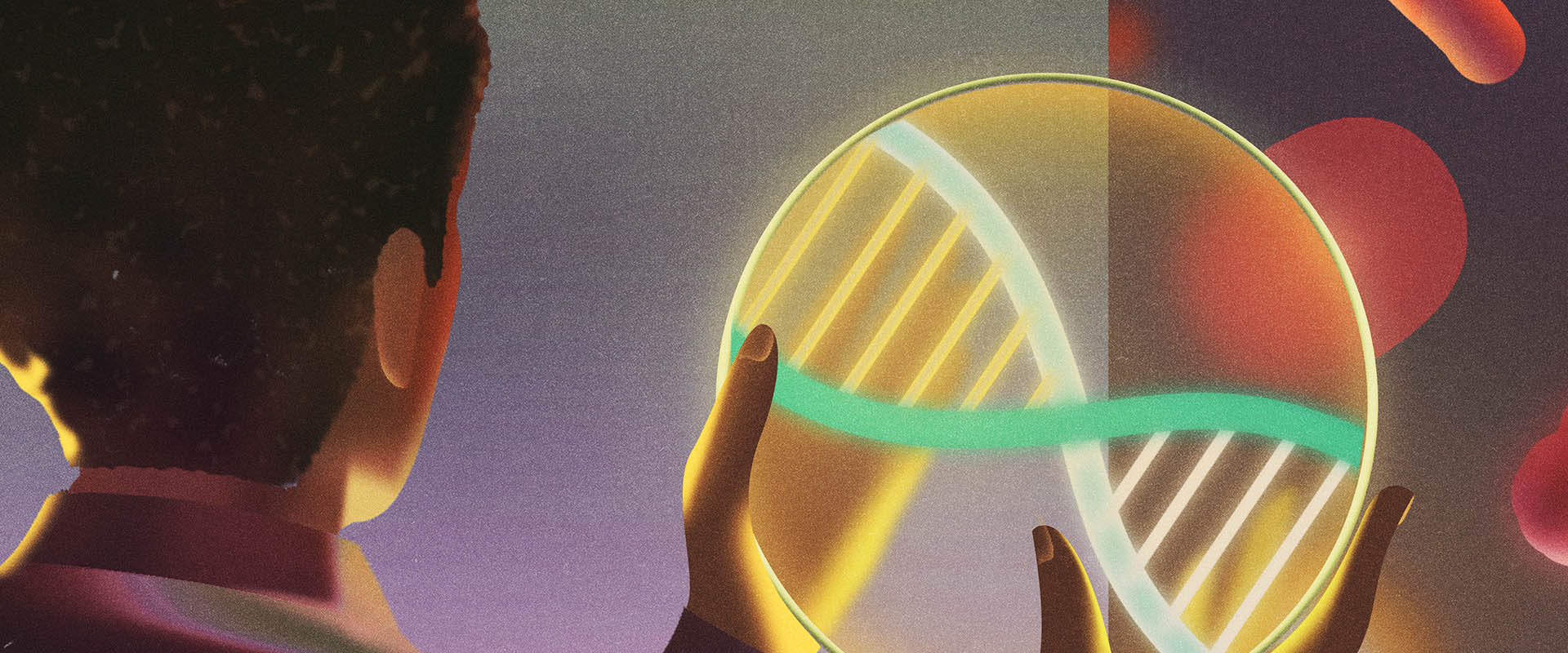Innovation is everywhere and can mean different things to different people. We spoke to four of the University’s innovation leaders – John Holden, Lou Cordwell, Catherine Headley and Aline Miller – to get their take on what innovation means at Manchester and how it’s driving new ways of working, exciting initiatives and positive outcomes with tangible impact.
It's in our DNA
At Manchester, we’ve long been at the forefront of boundary-pushing ideas that take on urgent problems and deliver solutions that make a difference. Our innovative nature has delivered the first modern computer, the beginnings of artificial intelligence, Nobel Prize-winning discoveries and much more. Today, our research and innovation interweave to spark ideas that lead to new technologies and fuel scientific breakthroughs – while also raising questions and exposing new problems to solve. The best progress happens when there is space for research to feed into innovation, and innovation can push back into research.
Our ambition is to be recognised as a world leader in innovation and to cultivate an environment where everyone has the potential to unlock entrepreneurial skills or access partnerships and collaborations that boost commercialisation and create a positive impact on society, the environment and economy. We are supported by our hometown – the ‘original modern city’ with innovation in its DNA. It’s a city built on engineering, manufacturing and putting ideas into practice. This legacy shapes how the city of Manchester and we, as a university, approach innovation – valuing real-world solutions, not just theory.
We want to make it easy for people to move between academia and working in a startup, existing companies, social enterprise and more.
Busting myths
To get to the bottom of what innovation really is, and what it means at Manchester, I spoke to the University’s innovation leaders to get their take. The question I put to them was: “What is the biggest misconception about innovation?”
“That it’s solely about new technologies,” says John Holden, Associate Vice-President for Major Special Projects. “Often an innovation to improve a business process can be more impactful than introducing a new technology. Creating a social enterprise that improves millions of lives is arguably more valuable than creating the next tech billion-dollar unicorn,” he adds.
It also covers many areas, from startups to “scale-ups, industry collaborations, social enterprises, place-based partnerships, skills development and much more”, says Lou Cordwell, CEO of Unit M. Aline Miller, Chief Scientific Officer of Unit M and Professor of Biomolecular Engineering, adds that from a research perspective: “Many think innovation is simply an add-on, but it really needs to be woven in from the start.”
“Yes, also that it’s purely about commercial endeavours and profit,” says Catherine Headley, CEO of The University of Manchester Innovation Factory. “In reality, we don’t take a narrow view of innovation. It’s not just about business – it’s about turning research into real-world impact. The work we support is often focused on tackling global challenges and delivering meaningful benefits to society.” It’s also a “willingness to try new things, be experimental and creative”, says Catherine. Some of the biggest breakthroughs come from taking a risk or an experiment gone wrong.
Building our ecosystem
The conversation turns to how we, as a university, bring it all together and build an integrated innovation ecosystem. Catherine believes that it’s crucial that we cultivate a “supportive and inclusive environment”, giving our staff and students the space and freedom to conduct these experiments, “[crucially] fail, and succeed in turning amazing ideas into impactful outcomes”.
John expands on this: “We want to make it easy for people to move between academia and working in a startup, existing companies, social enterprise and more.” Aline agrees: “We’re connecting all the parts of the innovation ecosystem together, internally and externally.” The University ecosystem cannot be a solitary function; it must be built within the wider region to create the most impact: “We can’t do everything ourselves,” John says. “We need smart finance in the city, experienced deep tech founders to mentor innovators, more accelerator and incubator programmes, and easier pathways to go from startup to scale-up.”
All acknowledge the importance of celebrating failures as much as successes. “Innovation is an imperfect process,” says Lou, “so we’re always keen to find University colleagues who want to get involved in trying out new ideas and ways of working”. By strengthening our partnerships and collaborations, creating more staff spin-outs and student startups, and supporting them to scale up, we provide an accelerating environment for generating growth across the region and UK.
At the core of this is collaboration and donations. Collaboration brings together people, ideas, funding and research to solve real-world challenges, while donations give emerging entrepreneurs the capital and support they need to turn ideas into reality.
Celebrating success
As we come to the end of our conversation, I ask the group about their own sources of inspiration – if they could collaborate with any innovator (past or present) who would it be?
“Professor Robert Langer, from MIT,” says Aline. “He founded more than 30 biotechnology companies that translate groundbreaking scientific discoveries into practical solutions that address critical healthcare challenges.”
For John, it’s Andy Grove – former Chief Executive of Intel. “He introduced innovations that pushed forward the global technology frontier,” along with “innovations around the basics of what makes a company tick.
“He was a calculated risk-taker and recognised the need to constantly adapt and innovate to stay relevant and competitive,” says John, something the University looks to emulate.
“Marie Curie for me,” says Catherine. “She was a female trailblazer who broke barriers and inspired generations of women in science and innovation. Her research and discoveries still have far reaching impact.”
Another female icon comes to mind for Lou in Vivienne Westwood – “She is my innovation heroine. Not only did she change the fashion industry forever, but she was also a formidable campaigner for social innovation in climate change and human rights. One of the world’s great disruptors!”
Learn more about Unit M and the Innovation Factory.


.jpg)


-(2).jpg)